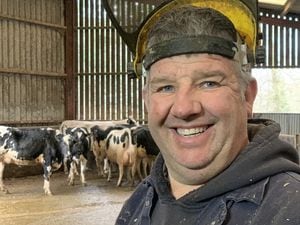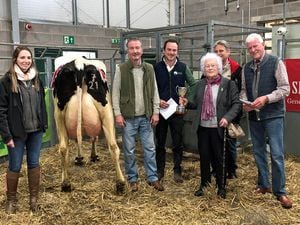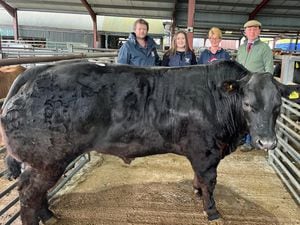Meat production cost 'would treble without subsidy' says leader as councillors prepare to issue government plea
Producing meat would treble in cost if subsidies for farmers didn’t exist, a councillor has said.

At a meeting of Powys County Council (PCC) on Thursday, March 7, councillors debated a motion by Conservative councillor Lucy Roberts, asking the Welsh Government to pause and reconsider the Sustainable Farming Scheme.
The scheme has stoked much anger in Powys and throughout Wales, and has seen farmers take to the streets and steps of the Senedd in protest.
At the meeting, 29 of the 68 Powys councillors had to declare and interest in the item due to being farmers, being related or friends with farmers as well or working with the agricultural sector.
Clive Pinney, head of legal and monitoring officer, told these councillors they could take part in the debate but not vote on the motion.
The motion had been amended before being put to the councillors and said: “Powys County Council considers the current situation to be untenable and asks the Welsh Government to renew engagement with the farming unions, before re-approaching the agricultural sector, once serious amendments have been made to the Sustainable Farming Scheme.”
Independent councillor and farmer Edwin Roderick said: “The scheme is not fit for purpose.
“It has been drawn up by people with no knowledge of agriculture, no knowledge of cefn gwlad (countryside) and no knowledge of the culture.”
He believed that people don’t understand why farmers receive subsidies which was brought in by the 1947 Agriculture Act under Clement Attlee’s Labour Government which also founded the National Health Service.
Mr Roderick said: “The purpose at the time was to produce cheap food for people after the Second World War.
“Many farmers might say take the subsidy from us.
“But let’s remember one thing, when we receive £100 today for a lamb, without that subsidy, it would be £300.
“And then could the consumer afford to buy that meat and that is the main problem.”
Liberal Democrat councillor Angela Davies who is also a farmer, said: “It’s clear the debate around the proposals have caused great division."
She believed that the scheme had been “misrepresented” had caused untold “distress” and those who had spoken in favour have been subjected to “abuse and intimidation.”
She said: “Not all farmers are against the proposals there are a number of issues that need clarity, we need to know all the final detail.
“I feel the motion is a little premature and I look forward to hearing the (consultation) responses and the detail on how Welsh Government propose to take this forward.”
Fellow Lib Dem Adam Kinnerley said that the debate should not be “environmentalists versus farmers.”
Councillor Kinnerley added: “We as PCC have little influence over the national government funds and how they are deployed, or the management of land which in the hands of large private landowning community by and large.
“What we have a degree on influence on is PCC spend and looking at the economic and education levers we have."
He argued that the council itself needed to engage with the farming community around what the “future of farming” looks like in Powys.
Deputy council leader and Labour group leader, Councillor Matthew Dorrance said: “We’re all touched by farming in some shape or form and we’re really lucky here to have really good quality farming products.
“We should be doing more to champion particularly around supermarkets stocking farming products.
“Having listened to the debate I will vote for the motion as it’s important that we’re united as a council on this issue.”
Earlier in the debate, farmer and Conservative group leader, Councillor Aled Davies paid tribute to the farming unions for “clear and strong” leadership on the issue.
He also praised politicians including Plaid Cymru’s Llyr Huws Gruffydd MS and farmer and social media influencer Gareth Wyn Jones for providing “strong voices” for the farming community.
Before the vote was taken, Mr Davies said: “After the monitoring officer has heard the debate has the advice changed at all?”
Mr Pinney said: “The advice remains as it’s the Standards Committee’s dispensation.”
Mr Davies then said there was “no point in” staying as he could not vote and began packing up. He and several others who were not allowed to vote then left the chamber.
The motion was approved with 28 councillors voting in favour, one against and four abstentions.
The consultation ended on March 7.





